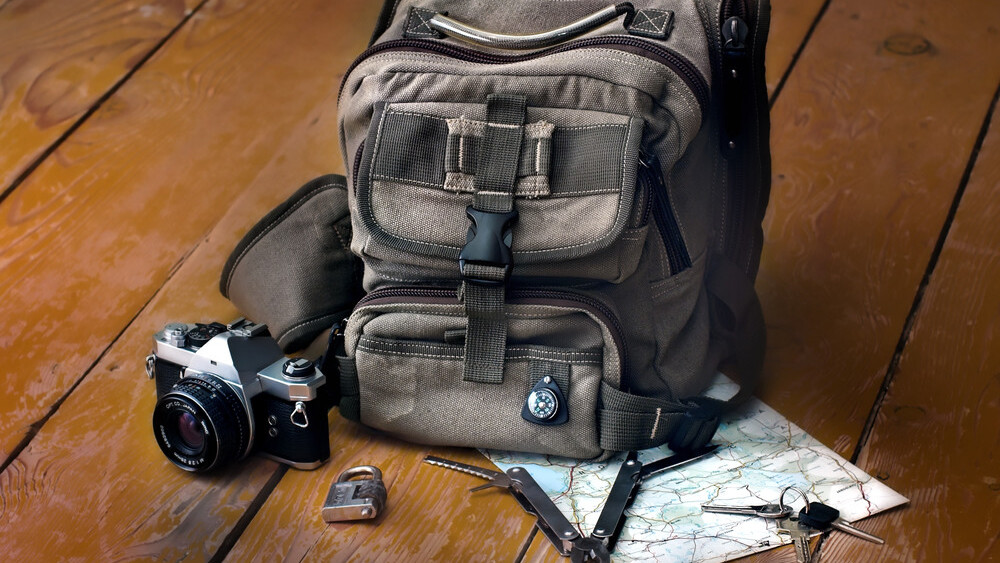
Despite the massive popularity of photo filters (OK, Instagram), changing the fundamental appearance of a photo by layering on an algorithm is mostly a take-it-or-leave-it proposition.
Never one to judge the aesthetic tastes of others, I personally tend to shy away from radical alteration of photographic reality (as opposed to routine editing for exposure, crop, and sharpen). It’s kind of like wearing tinted contact lenses. You’re not displaying the genuine article, but rather transforming it into something it is not.

That said, certain photo filters are truly striking, and I use them—albeit sparingly—not merely to enhance my photos but to achieve a certain unique edge that will boost viewer appreciation and even offer some photographic historical reference. That last bit is what Nevercenter’s CameraBag 2 Mobile is about.
Like Alien Skin’s Alt Photo or JixiPix’s Vintage Scene, the recently updated CameraBag 2 tears a page from the past. And it is a worthy addition to any mobile photo kit for its high-quality output, vast variety, ease of use, and scalability.
CameraBag 2’s mobile version comes in two separate versions, an iPhone ($2) and an iPad HD ($4) app. I’m guessing that the iPhone app might prove somewhat more popular—not only because it costs less—but because the phone is the more accessible camera for shooting and instant uploads to social networks like Facebook, Twitter, and Instagram, to which the app can provide a direct link.

The selling point of CameraBag for iOS, as with its desktop version for Mac and PC, is that its filters have a distinct historical and stylistic identity and excellent quality. The mobile app features the same 32-bit-per-channel engine as the desktop version, which assures that filtered images retain smooth color gradations regardless of which filters are used. With both, you can either shoot an original photo within the app or pull one out of your Camera Roll.
The icon based menu at the bottom of the interface gives you the choice of first cropping the photo to the desired size, aspect ratio, and border styles. The filter icon then leads you to the heart of the app, where you can access filters with names like 1962, 1974, Film NC-1A, Instachrome, Pinhole, Field Guide, Helga, SLR, Portofino, and many more.

If you’re not instantly overwhelmed by the built-in choices, feel free to knock yourself out by accessing the online style library. There, you’ll find the Monochrome collection, Helga remixes, and Legacy styles. If you like anything, download it, free of charge.
With the swipe-through interface of full screen previews for each style, you won’t come up for air anytime soon.
Real time edits
Each style offers assorted editing opportunities and previews you can adjust and view in real-time. For example, Instachrome lets you use the onscreen slider to adjust exposure, instant amount, autochrome amount, contrast, and saturation. As you move the slider, the app automatically shows you a small dynamic preview of what the composition would look like.
Portofino, on the other hand, lets you adjust exposure, shadowiness, vignette, coloring, grain, and blur. Moving the slider left to right intensifies the chosen effect. A remix button on the canvas encourages you to look at different auto-generated edits before saving and sharing.

What I like most about CameraBag’s mobile version is that despite the vast variety, it’s dead simple to use. The concentration is more on the images and less on the social networking aspect of the app. It’s a little disappointing that you can’t use gestures to zoom into the subject of a frame. However, you can crop by using the built-in presets to change the aspect ratio and image dimension, or manually adjusting your crop.
Pros: The phone and tablet apps are equally easy to work with, vast variety of cool historical effects, lets you save custom presets and apply them between desktop and mobile versions; growing library of free additional filters online.
Cons: iPhone version only operates in portrait mode, no basic edits such as exposure and sharpening.
Image credit: Shutterstock
Get the TNW newsletter
Get the most important tech news in your inbox each week.





